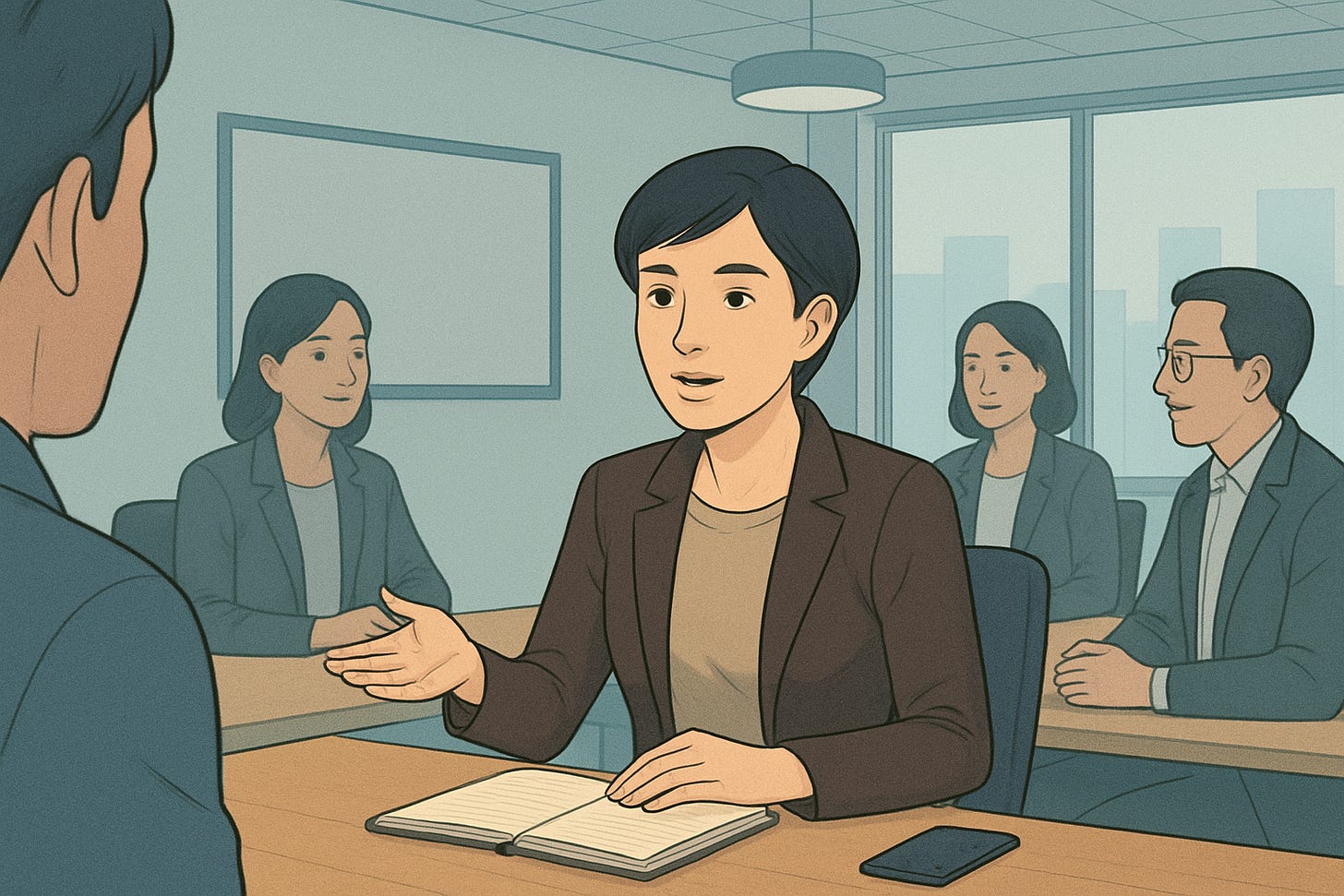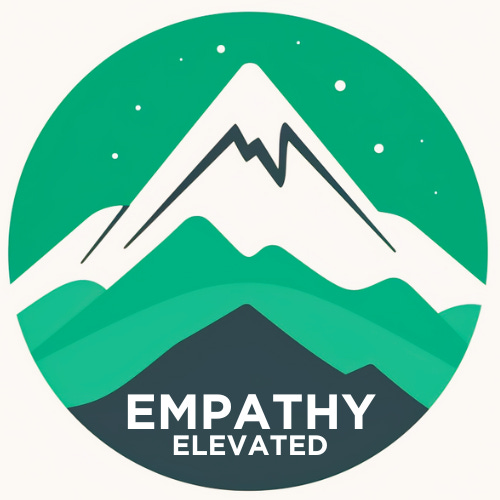The Unexpected Career Killer: Lack of Emotional Intelligence
Soft skills aren’t soft anymore. They’re survival tools.
I’ve been told more times than I can count to “just keep your head down and work.” Maybe you have too, expecting your hard work will speak for itself.
For many of us in tech, doing great work hasn’t been enough to move the needle. I know what it feels like to be overlooked, waiting for my work to finally speak for itself, and realizing it never really does.
This story is about what I learned the hard way: that our uniquely human skills, not just our technical ones, are what change the game.
Doing Everything Right and Still Overlooked
You are a doer, and you get stuff done.
You put in the hours. You know the tech like the back of your hand.
People know you are the go-to if they need backup on something.
You’ve deployed and engineered programs, making the lives of those around you.
You lead with heart, or so you think.
Yet, year after year, your position remains essentially unchanged.
You get a minimal raise, and you stay, well, stuck.
If you are meeting your deadlines, why is the needle not moving to elevate your career?
What’s missing?
Your work being excellent and tech proficiency is the baseline, no longer the exception.
Your differentiator is something less tangible or measurable, but visible - your Emotional Intelligence.
Your Work Isn’t Speaking for Itself Anymore
Think back to the early days of your career - far back, well before your current role was a reality or perhaps even a thought.
Back to my first job, when I worked on a food line assembling take-and-bake pizzas.
Back then, my job performance was primarily measured by my efficiency in producing high-quality pizzas.
Working in data analytics was something I hadn’t even considered back then. However, the need to produce quality work remains; it is simply the end product.
But what if I told you that was just a given?
Have you heard the advice, “Do not put proficient in MS Word and Excel” on your resume? I have. Just a decade ago, it was generally encouraged to do this in resume preparation training. What changed? Now, it is just expected.
Much like killing your resume, you do not want to kill your career by ignoring what can get you ahead.
Your skill in expressing your work, its value proposition, and relationship management is what helps you stand out.
In a world where algorithms can increasingly replicate technical skills, your uniquely human ability to connect and interpret nuance becomes your greatest asset.
This is the EQ anchor that remains irreplaceable in our AI-augmented future.
Feedback Isn’t an Attack, It’s a Lifeline
I had a moment early in my career where I was feeling particularly down on myself. I felt like a failure when I saw one of my friends and colleagues moving along a bit quicker than I was in our expected progression through a rotation program.
My manager and mentor at the time advised I study up on the “growth mindset” so I could move through the sludge.
I nodded and smiled, but grumbled as I left his office. I found it stupid. I knew what I knew, and I was doing well in terms of the quality of my work. In my mind, it was everyone else’s failure that they could not see it.
Several months passed, and I sank deeper into despair as I felt stuck in my rotation.
He reminded me of our discussion around the “growth mindset”, but this time in a slightly different context of, “I want you to ASSERT yourself in it.” The word assert was a lightbulb moment for me. It was a moment of self-awareness, knowing “hey, I can do that, and I will!”
I did not view it as an attack this time, but rather a lifeline.
You should, too, when someone you know cares about you, gives you some feedback, even when it is tough to hear.
Consider feedback as a valuable professional development resource.
Developing and growing can be uncomfortable. But, if you want to accelerate in your career, do you expect to stay frozen in your ways?
No! Each new progression will bring growth, but you must be open to hearing it and leveraging it in a way that is advantageous to you.
You will never get there if you are closed off.
This is where Stoicism becomes your superpower. The ancient Stoics taught us to distinguish between what we can truly control and what we cannot.
You can’t control others’ perceptions entirely. You can, though, control your response to feedback.
Master Yourself, Then the Room
“To begin—or sustain—real development in emotional intelligence, you must first engage that power of your ideal self. There’s a simple reason: Changing habits is hard work” (Primal Leadership, by Daniel Goleman, Richard Boyatzis, and Annie McKee, Page 116).
It’s hard to move away from the status quo, especially when it is uncomfortable.
Forcing yourself to do so, though, and building the habit, like a muscle, will open you up to growth.
Back to my story - how did I learn to assert myself better?
Well, I didn’t do it by speaking first, but rather by practicing empathic listening and then following up with a tailored response that allowed me to assert my input or expertise.
It was uncomfortable speaking up on the fly in the room. I had to master the habit of forcing myself to do, even going as far as to write a small note in my workbook. I would push myself to speak early, to get it over with.
I spoke up one day in a meeting about a hypothesis on what was happening in a sector of our business.
A couple of days later, I was called into the same manager’s office, where I was asked if I would be interested in conducting a deep dive into the data to help validate my hypothesis.
Mind you, I was not working in data analytics yet. It was uncomfortable, but I offered to do it and at least explore the data.
A few months after that, I was sitting in an interview at the company to promote myself for my first data analytics role. (spoiler: I got it!)
While AI tools could have helped analyze that data, they couldn’t have generated the original hypothesis that came from my human experience and intuition. This is the Human-AI Thought anchor in action – knowing when to leverage technology as your partner while keeping your humanity central to the process.
The best data analysts don’t just know the algorithms; they know which questions are worth asking in the first place.
What Got You Here Won’t Get You There
What got you to point A will not get you to point B. Parts of it will, but not entirely.
How I interviewed at my first job at the pizza place was incredibly different than how I did for my current company.
My first job interview after college highlighted different hard skills than I possess today.
What hasn’t changed, though?
Shining through with empathy, building connections, and fostering relationships. Over the years, I have flexed it and grown in my ability in emotional Intelligence.
Had I not, I would have killed my career years ago.
Instead, I have continued to progress. It’s been a gradual climb, sometimes with a lateral move, but nevertheless, I have not stayed stuck; instead, I have moved up and up.
EMPATHY ELEVATED IN ACTION
Emotional Intelligence → Listen first, speak second — your ideas land better when people feel heard.
Stoicism → When feedback stings, take a breath — your first reaction is rarely your best one.
Human–AI Thought → Your lived experience sparks questions no algorithm could ever ask — that’s your superpower.
We’re so grateful to
for allowing us to share her story here on Code Like A Girl. You can find her original post linked below.If you enjoyed this piece, we encourage you to visit her publication and subscribe to support her work!
Join Code Like a Girl on Substack
We publish 2–3 times a week, bringing you:
Technical deep-dives and tutorials from women and non-binary technologists
Personal stories of resilience, bias, breakthroughs, and growth in tech
Actionable insights on leadership, equity, and the future of work
Since 2016, Code Like a Girl has amplified over 1,000 writers and built a thriving global community of readers. What makes this space different is that you’re not just reading stories, you’re joining a community of women in tech who are navigating the same challenges, asking the same questions, and celebrating the same wins.
Subscribe for free to get our stories, or become a paid subscriber to directly support this work and help us continue amplifying the voices of women and non-binary folks in tech. Paid subscriptions help us cover the costs of running Code Like A Girl.








This is very nice to read before starting the day. It has quite motivated me, thanks!